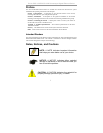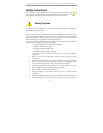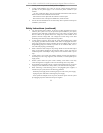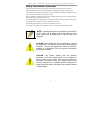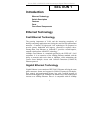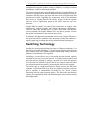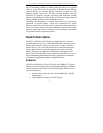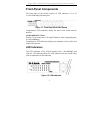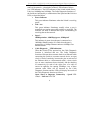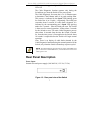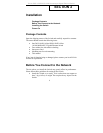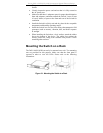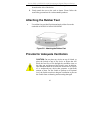
D-Link DGS-1016D/DGS-1024D Unmanaged Gigabit Ethernet Switch
3
For Fast Ethernet or Gigabit Ethernet networks, a switch is an effective
way of eliminating problems of chaining hubs beyond the “two-repeater
limit.” A switch can be used to split parts of the network into different
collision domains, for example, making it possible to expand your Fast
Ethernet network beyond the 205-meter network diameter limit for
100BASE-TX networks. Switches supporting both traditional 10Mbps
Ethernet and 100Mbps Fast Ethernet are also ideal for bridging between
existing 10Mbps networks and new 100Mbps networks.
Switching LAN technology is a marked improvement over the previous
generation of network bridges, which were characterized by higher
latencies. Routers have also been used to segment local area networks, but
the cost of a router and the setup and maintenance required make routers
relatively impractical. Today’s switches are an ideal solution to most kinds
of local area network congestion problems.
Switch Description
The DGS-1016D/DGS-1024D Switch is equipped with 16 or 24 ports
providing dedicated 10, 100 or 1000 Mbps bandwidth. These ports can be
used for connecting PCs, printers, servers, routers, switches, and other
network devices. The 16/24 multi-speed ports use standard twisted pair
cabling and are ideal for segmenting networks into small, connected
subnets. Each port can support up to 2000 Mbps of throughput in full-
duplex mode. This stand-alone switch enables the network to use some of
the most demanding multimedia and imaging applications concurrently
with other user applications without creating bottlenecks.
Features
The DGS-1016D/DGS-1024D 16/24-Port 10/100/1000BASE-T Gigabit
Ethernet Switch was designed for easy installation and high performance
in an environment where traffic on the network and the number of users
increase continuously.
• Sixteen (16) or twenty-four (24) 10/100/1000BASE-T Gigabit
Ethernet ports
• Cable Diagnostic function at Switch boot up



